Ready to participate? The EPCI is now available online!!!
We are quite happy to announce that the Enhanced Phenomenology of Consciousness Inventory (EPCI) is now fully operational and available online!!!
After many months of fine-tuning and careful calibration, the wait is finally over. With your help in completing this survey, together we can cultivate a deeper and more precise appreciation for genuine, lived religion as it is experienced on the ground by actual individuals across many different cultural contexts and demographic groups.
But that's not the only reason to participate! You will receive immediate feedback in the form of detailed information about the nature of your experience, as well as easy-to-understand graphs and charts that allow you to see how your own results compare with those of others who have also taken these surveys. So, if you've had an intense religious or spiritual experience in the past, please consider sharing that experience with us by completing the EPCI.
To do so, simply go HERE and look for the survey called "Religious and Spiritual Experiences" (don't worry, all responses remain anonymous and any participation on your part is kept strictly confidential). And tell your friends -- if you know of others who may have had an experience of this type, we would greatly appreciate your help in spreading the word.
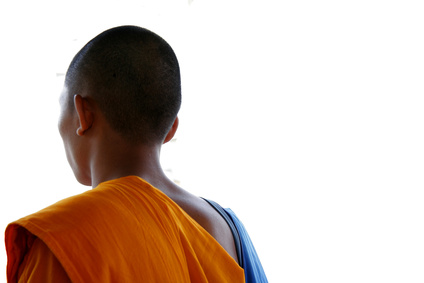 To believers, spiritual experiences often feels very real. In fact, religious thinkers of many different traditions have claimed that spiritual experiences are, in fact, more real than everyday life. But one of the most important hypotheses in contemporary religious studies is social constructivism, which is the idea that all religious concepts and beliefs are actually creations of human cultures. Social constructivists argue that religious and mystical experiences don’t reflect any higher reality, but in fact are merely products of history, culture, and society. But new research from China suggests that mystical experiences may go deeper than culture.
To believers, spiritual experiences often feels very real. In fact, religious thinkers of many different traditions have claimed that spiritual experiences are, in fact, more real than everyday life. But one of the most important hypotheses in contemporary religious studies is social constructivism, which is the idea that all religious concepts and beliefs are actually creations of human cultures. Social constructivists argue that religious and mystical experiences don’t reflect any higher reality, but in fact are merely products of history, culture, and society. But new research from China suggests that mystical experiences may go deeper than culture.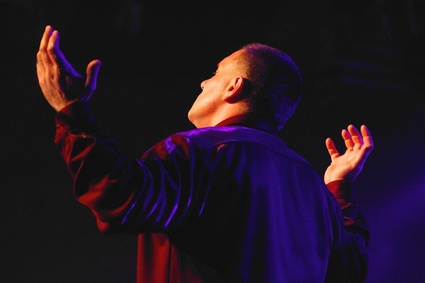 You’ve probably heard or read somewhere that all religions are different ways of approaching the same truth. This sentiment, while heartwarming, is a controversial one. Of course, conservative adherents to different faith traditions tend to dismiss claims that other religions might offer any glimpses of truth. But the debate is probably fiercest in the academy: one of the biggest arguments among scholars who study religion is whether or not religions actually have anything in common with one another. Now, a new study by researchers in Tennessee and China suggests that they do, at least when it comes to mystical experiences.
You’ve probably heard or read somewhere that all religions are different ways of approaching the same truth. This sentiment, while heartwarming, is a controversial one. Of course, conservative adherents to different faith traditions tend to dismiss claims that other religions might offer any glimpses of truth. But the debate is probably fiercest in the academy: one of the biggest arguments among scholars who study religion is whether or not religions actually have anything in common with one another. Now, a new study by researchers in Tennessee and China suggests that they do, at least when it comes to mystical experiences.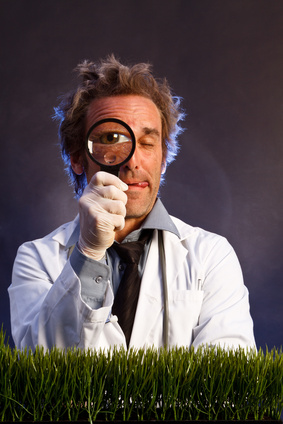 You might expect professionals working in the hard sciences to be less religious than the rest of us, and to an extent you’d be right – the vast majority of elite scientists in the U.S.
You might expect professionals working in the hard sciences to be less religious than the rest of us, and to an extent you’d be right – the vast majority of elite scientists in the U.S.  It’s often been claimed that human religiousness is universal – that societies everywhere have gods, spirits, ghosts, creation myths, religious rituals, or any combination thereof. This assertion is often used to base arguments about the genetic origin of religious behaviors. But what if there were a society that had no religion? Would that mean that religion is learned, not inherited? Followers of linguist Daniel L. Everett (Bentley University) claim he has found just such a society: the Pirahã, a South American tribe. But as is so often the case in the study of religion, things might not be so simple.
It’s often been claimed that human religiousness is universal – that societies everywhere have gods, spirits, ghosts, creation myths, religious rituals, or any combination thereof. This assertion is often used to base arguments about the genetic origin of religious behaviors. But what if there were a society that had no religion? Would that mean that religion is learned, not inherited? Followers of linguist Daniel L. Everett (Bentley University) claim he has found just such a society: the Pirahã, a South American tribe. But as is so often the case in the study of religion, things might not be so simple. It’s a question many religious parents dread: “When Spot dies, will he go to heaven?” Countless children – and adults – have wondered whether their pets possess spirits, and the debate isn’t likely to go away anytime soon. Still, recent research in neuroscience may shed light on this age-old question by suggesting that many animals are capable of religious experiences, including near-death encounters and profound feelings of awe and oneness. According to these studies, the root of spiritual experiences in humans and animals is a structure shared by both – the limbic brain.
It’s a question many religious parents dread: “When Spot dies, will he go to heaven?” Countless children – and adults – have wondered whether their pets possess spirits, and the debate isn’t likely to go away anytime soon. Still, recent research in neuroscience may shed light on this age-old question by suggesting that many animals are capable of religious experiences, including near-death encounters and profound feelings of awe and oneness. According to these studies, the root of spiritual experiences in humans and animals is a structure shared by both – the limbic brain. While predictions of the imminent death of religion in an increasingly “secular” world often sound quaint, if not downright out of touch, profound religious experience can still seem like the purview of a fringe minority. After all, being “born again,” or achieving “mokṣa” (liberation) are not exactly everyday experiences, even for those who say they have had them. Nevertheless, a new survey by the Pew Form on Religion and Public Life finds that nearly half of all Americans have had what they consider a “religious or mystical experience,” over twice as many as in 1962.
While predictions of the imminent death of religion in an increasingly “secular” world often sound quaint, if not downright out of touch, profound religious experience can still seem like the purview of a fringe minority. After all, being “born again,” or achieving “mokṣa” (liberation) are not exactly everyday experiences, even for those who say they have had them. Nevertheless, a new survey by the Pew Form on Religion and Public Life finds that nearly half of all Americans have had what they consider a “religious or mystical experience,” over twice as many as in 1962.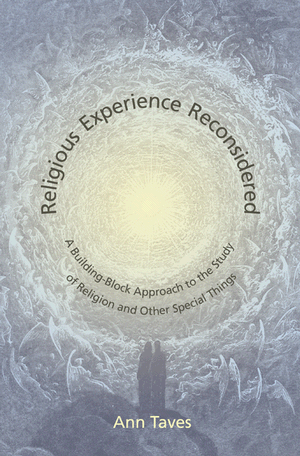 experience) as adaptive, their sui generis character presents few obstacles to the scientific study of religion. The evolutionary history of these aspects of religion is assumed to have stabilized the features that proved beneficial or that promoted reproductive success in the individuals who possessed or practiced them. Nor do the findings on religious experiences and practices emerging from the neurosciences seem that surprising from this perspective. If some aspect of religion is adaptive, then it should exhibit consistent design features that can be detected in brain and behavior. Similarly, from this perspective, religion’s affect on health is also predictable and unsurprising. However, there are very serious problems with this “religion as adaptation” position, many of which have been discussed ably by others in a variety of venues. One of the most intractable problems for this position is the issue of the nature and putative function of experiences deemed religious. In
experience) as adaptive, their sui generis character presents few obstacles to the scientific study of religion. The evolutionary history of these aspects of religion is assumed to have stabilized the features that proved beneficial or that promoted reproductive success in the individuals who possessed or practiced them. Nor do the findings on religious experiences and practices emerging from the neurosciences seem that surprising from this perspective. If some aspect of religion is adaptive, then it should exhibit consistent design features that can be detected in brain and behavior. Similarly, from this perspective, religion’s affect on health is also predictable and unsurprising. However, there are very serious problems with this “religion as adaptation” position, many of which have been discussed ably by others in a variety of venues. One of the most intractable problems for this position is the issue of the nature and putative function of experiences deemed religious. In 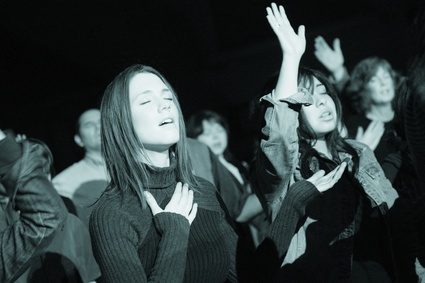 What happens when a Catholic nun experiences God through contemplative prayer? What happens when a Hindu feels the presence of Shiva? What about the religious experiences of Sufis, Jews, Buddhists, and Daoists? The list could go on and on, but a vital question is: how similar or different are these religious experiences? The Institute's Quantifying Religious Experience Project (QRXP) aims to provide an answer using the latest techniques in cognitive psychology and quantitative research.
What happens when a Catholic nun experiences God through contemplative prayer? What happens when a Hindu feels the presence of Shiva? What about the religious experiences of Sufis, Jews, Buddhists, and Daoists? The list could go on and on, but a vital question is: how similar or different are these religious experiences? The Institute's Quantifying Religious Experience Project (QRXP) aims to provide an answer using the latest techniques in cognitive psychology and quantitative research.